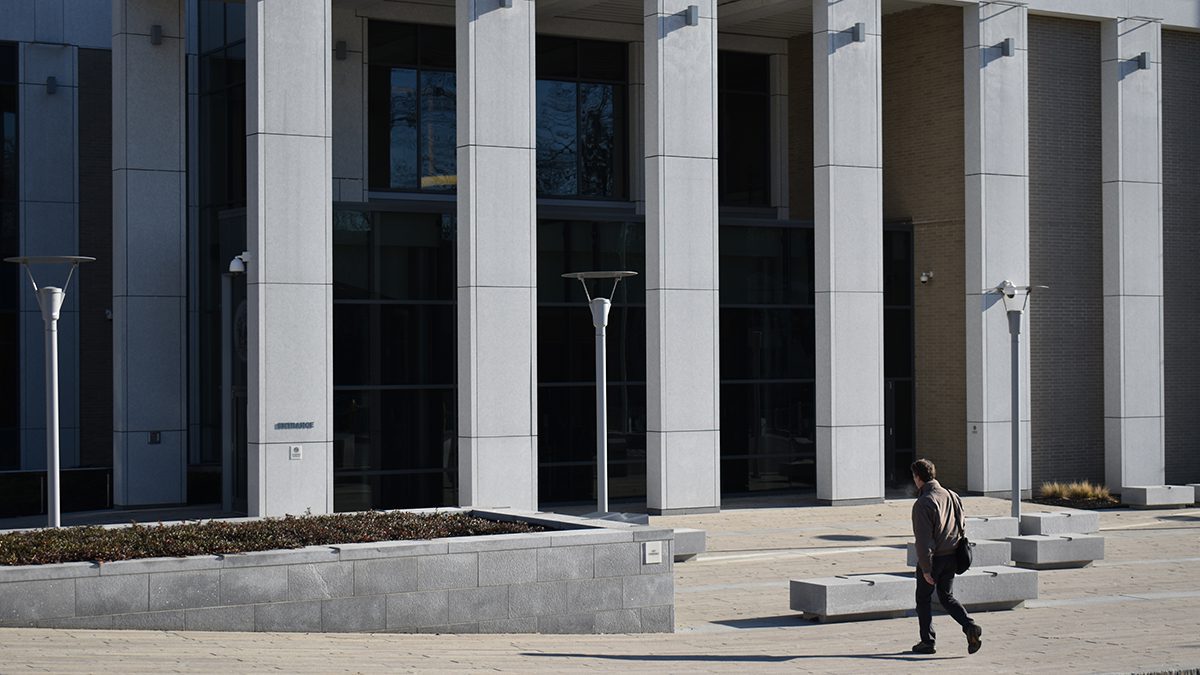The ACLU can go forward with a lawsuit against Maine officials contending the state violated the constitutional rights of indigent defendants by allegedly failing to create an effective public defense system, a superior court justice has ruled.
Maine’s attorney general had sought to dismiss the case and claimed the courts cannot grant the ACLU the outcome it desired, which is more funding to train, supervise, oversee and support the attorneys that defend Maine’s poor who are accused of crimes. Superior Court Justice M. Michaela Murphy ruled on June 2 that the courts can order the state to fix a constitutional deficiency.
“The state is correct that the Maine Constitution’s separation of powers requirement is ‘much more rigorous’ than that in the United States Constitution … however, even Maine’s robust separation of powers requirement does not prevent a court from ordering MCILS to comply with the Constitution if a constitutional violation has occurred,” Murphy ordered.
The ACLU has proposed to certify a class of as many as 7,269 defendants with pending felony cases earlier this year who may be affected by the state’s court-appointed lawyer system.
Maine is the only state that currently employs no public defenders and instead contracts with private attorneys to defend in court adult and juvenile who cannot afford to hire their own attorney. The Maine Commission on Indigent Legal Services, or MCILS, is responsible for overseeing the program but has fallen short of meeting state and national standards. Earlier this year, state lawmakers approved money to hire the state’s first five public defenders as a limited pilot program.
The ACLU of Maine had also alleged that MCILS had failed to pass rules setting standards for the lawyers, caseloads or evaluating the attorneys’ performance. Murphy agreed with the state that rulemaking was discretionary. She left the door open for the ACLU to amend its complaint if it meant to allege that, “the Commission is failing to require adherence to the standards they have created or that their standards are inadequate,” Murphy wrote in a footnote of her order.
At least 2,000 case assignments — ranging from murder to children charged with felonies — were handed off to lawyers who were not eligible under MCILS’s own rules to work on those kinds of cases over a period of five years, according to an analysis by The Maine Monitor and ProPublica published in 2021. This means more than 1 of every 8 case assignments that required specialized representation was given to an attorney who was supposed to be ineligible to serve, the analysis found.
Five people charged with crimes in Maine have claimed that they received subpar legal services from the lawyers with whom MCILS contracted and the courts appointed to represent them. The plaintiffs are being represented by the ACLU of Maine.

Chief Counsel with the ACLU of Maine Zach Heiden said after oral arguments on May 26 that the civil rights organization was looking for a court to order the state to meet its constitutional obligations to impoverished criminal defendants.
“What we’ve asked the court to do is to order the state to bring its system into compliance with the Constitution — to make sure that the lawyers assigned to people who are entitled to lawyers are properly trained and supervised and resourced,” Heiden said. “… The court is obligated to say what the Constitution means and what it requires and then it’s for the state to figure out how to comply with the court’s order.”
Though the state agency, its seven commissioners and Executive Director Justin Andrus are the named defendants on the lawsuit, the Office of the Maine Attorney General has determined that it is the state who is being sued, Assistant Attorney General Sean Magenis told the court.
The Office of the Maine Attorney General does not comment on ongoing litigation, a spokeswoman said on Monday.
Requests by Andrus and the commissioners to have their own counsel was denied, Andrus said.
Some of the state’s arguments to dismiss the lawsuit have directly contradicted positions and statements taken by the commissioners and Andrus about the failures of the state’s current public defense system.
Commissioner Ron Schneider said days before the hearing that the system has “already gone over a cliff” and that there was an actual denial of counsel in some of Maine’s counties where MCILS was unable to timely provide lawyers to people in jail or at risk of being sent to jail.
Schneider, an attorney with Bernstein Shur Law Firm in Portland, said that he would take a different approach with the lawsuit and try to negotiate a settlement with the ACLU that would improve the state’s public defense system.
“I would be in favor of trying to work out the differences and (then) determining if there is a path forward through mediation,” Schneider said after the hearing.
Andrus said he was “agnostic,” as the agency’s director, to the path the state might take to improve legal services for the state’s poorest criminal defendants. Legislators or the governor could take preemptive action to fix problems on a statewide basis ahead of a court order. Or it could be that a judge determines the actions that must be taken and instructs the state on what to do, he said.
“I’m essentially agnostic to which path gets us to where we need to be, because I don’t care. I just don’t care how we get to where we need to be. I just care that we get the funding and the incentives to have enough lawyers, to do a great job and serve the clients,” Andrus said.
Andrus said he has shared his perspectives but not had a meaningful role in developing the state’s response to the lawsuit, he said.
That is not to say that MCILS agrees with all the allegations leveled against the state agency in the lawsuit. Andrus said he was not prepared to discuss the specific allegations raised by the ACLU or the representation that the plaintiffs did or didn’t receive from their court-appointed attorneys.
“The information I have available to me doesn’t support all of the plaintiff’s allegations, but I don’t believe that a tit-for-tat assessment of the plaintiff’s allegations is necessary for us to recognize that we have work to do and seize the opportunity to continue to make progress,” Andrus said.
During the hearing on May 26, Murphy delayed considering the ACLU’s request to certify a class of as many as 7,269 members, which was the number of currently pending felony cases in the Maine Unified Criminal Docket across the state as of February 11, 2022, according to the ACLU. No date was set for that hearing as of Monday, according to the clerk’s office.
Murphy also dismissed former commissioner Bob Cummins as a defendant in the lawsuit. Cummins resigned in April out of frustration with a lack of action by the executive and legislative branches to reform public defense services in Maine, The Maine Monitor previously reported. He said he refused to be represented by the attorney general’s office in the ACLU lawsuit.
The case is expected to take months, if not years, to reach a final decision.
“We are prepared for the long-haul,” Heiden said. “When we decided that this case needed to be litigated — that this was an issue that was not going to get resolved unless there was litigation — we put together a team that is ready to take this case to trial and put the state system on trial to demonstrate the constitutional infirmities.”
Samantha Hogan covers government accountability for The Maine Monitor. She can be reached via email at gro.r1763890067otino1763890067menia1763890067meht@1763890067ahtna1763890067mas1763890067.








